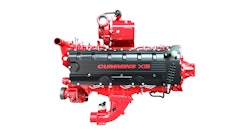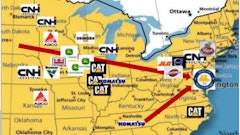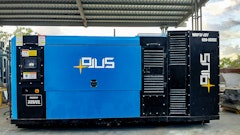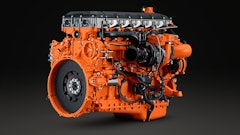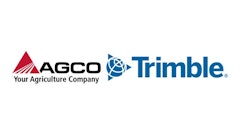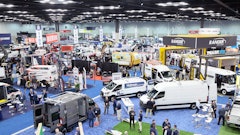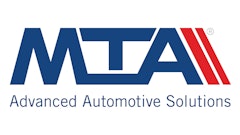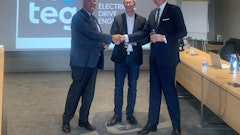
The Caterpillar Foundation and the nonprofit Local Initiatives Support Corporation (LISC) announces that they are teaming up to help distressed neighborhoods in Peoria, IL, where the heavy machinery manufacturer has long had its world headquarters.
The foundation, which is funded by Caterpillar Inc., has committed $3 million to LISC so it can bring its tested model for reviving blighted neighborhoods to Peoria.
LISC's president Michael Rubinger emphasized that without the Caterpillar Foundation's leadership and financial support the project never would have happened. "We would not be here but for the company's eagerness to help its hometown communities regain their economic equilibrium."
"Caterpillar is very excited to help bring this important program to the Peoria area," says Michelle Sullivan, vice president of the Caterpillar Foundation. "The Foundation is focused on addressing the root causes of poverty, not just the symptoms. We look forward to working with LISC and its Peoria-based advisory board to mobilize all available resources and revitalize the neighborhoods in need."
A pioneer in community revival, LISC has spent the last three decades joining forces with local groups in 30 cities and dozens of rural areas across the country to eliminate blight, spur economic growth, and raise the standard of living for low-income families. Now, with Caterpillar's support, LISC is launching its first new local program in 15 years here on the banks of the Illinois River.
Peoria became famous as the symbol of American Midwestern culture. "Will it play in Peoria?" was the litmus test on the old vaudeville circuit—if it played there, it would play anywhere.
But like a lot of the nation's beloved cities, Peoria needs help. South Peoria and East Bluff have high rates of poverty and unemployment, large numbers of vacant properties, significant crime and crumbling housing stock. In fact, in East Bluff alone, half of all homes were built before 1940, many of them deteriorating.
Yet, these communities also have strong nonprofits, progressive schools and existing public-private partnerships that could support programs aimed at stability and growth, according to Anika Goss-Foster, LISC's program vice president for the Midwestern region.
"What they don't have are partners who understand how to fuel it. That's where we come in," she says. "We are committed to these communities in ways that help new housing, new businesses, and new programs succeed and have a lasting impact on the people who live there.
She emphasized that LISC wasn't working in Peoria because it has more poverty or problems than other places. "We are here because of the local capacity to lead change and the financial capacity to get the work started. Too few smaller cities have that combination."
More than a year in the making, the launch of LISC Peoria is the result of extensive conversations among city, business, and community leaders who cited Peoria's need for an intermediary that understands how to lend and invest in low-income communities.
LISC's efforts in Peoria will be led by a local staff and a local board chaired by Caterpillar Foundation's Sullivan.
"We feel the success of this venture will be due in large part to bringing in someone to run it who knows Peoria, understands our history and is passionate about its future," Sullivan says.
The philosophy of the Caterpillar Foundation, she added, is to invest in the communities where the company's employees live and work. "Nowhere else in the world do we have more employees than right here in the Peoria area," she says. "That's why we are choosing to invest in our neighborhoods here."
LISC expects to focus its efforts initially on South Peoria and the East Bluff neighborhood but will expand into the surrounding Peoria, Tazewell and Woodford Counties, leveraging its experience working in rural areas around the country into a hybrid urban/rural program.
Working with community-based groups, LISC will provide grants, loans and equity investments to build affordable housing, revitalize commercial corridors and create jobs.
"Many of the local banks and private developers expressed a desire for another stream of capital that could help make the riskiest projects work," Goss-Foster says. "That's what made us believe we could make a difference in these neighborhoods."
ABOUT LISC
LISC combines corporate, government and philanthropic resources to help nonprofit community development corporations revitalize distressed neighborhoods. Since 1980, LISC has raised $12 billion to build or rehab 289,000 affordable homes and develop 46 million square feet of retail, community and educational space nationwide. LISC support has leveraged nearly $40 billion in total development activity. For more information, visit www.lisc.org.




